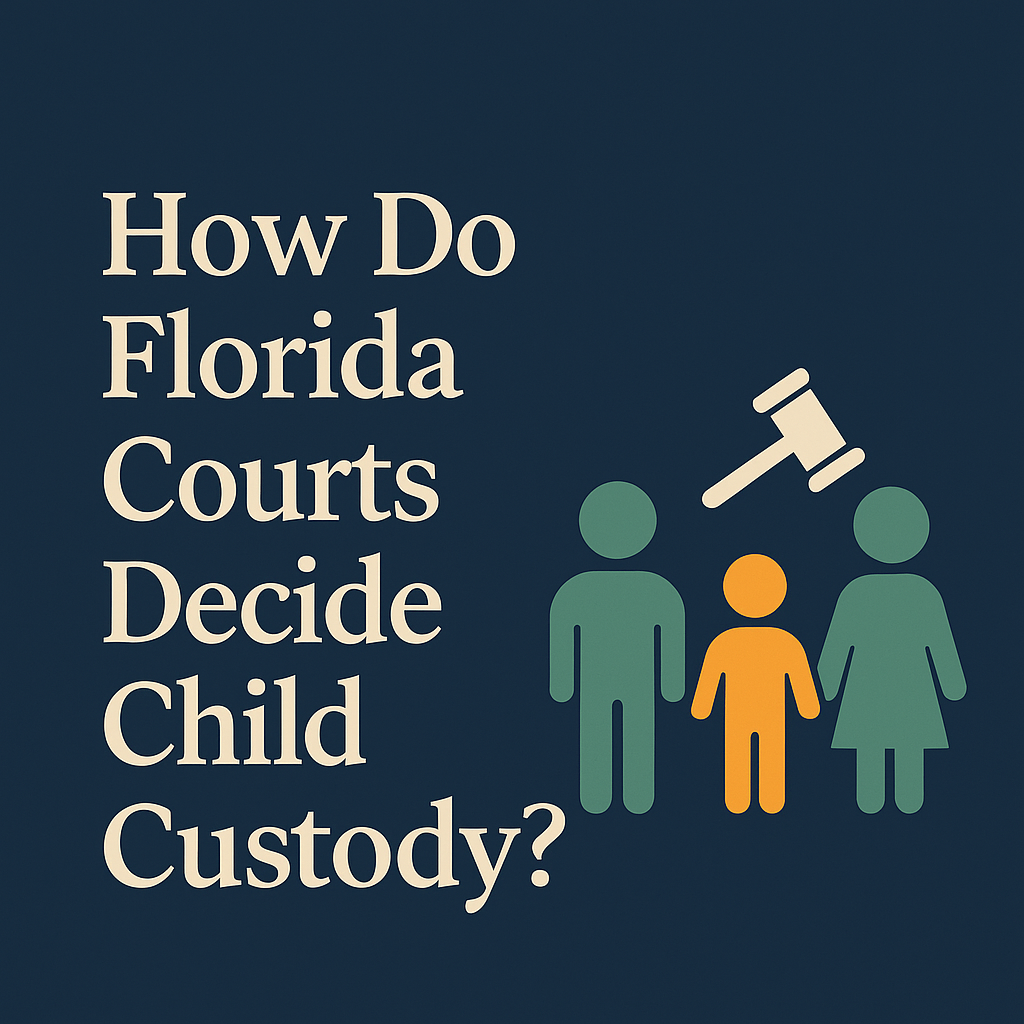
Introduction
One of the most common questions parents ask during a divorce or custody case is: “How will the judge decide who gets custody?” In Florida, the answer comes down to one key principle: the best interests of the child.
The “Best Interests of the Child” Standard
Florida law requires judges to evaluate several factors to determine what arrangement will best serve the child. These include each parent’s involvement in the child’s life, the stability of the home environment, and the ability of both parents to cooperate. Judges look closely at which parent is more likely to encourage a healthy relationship between the child and the other parent.
Key Factors Judges Consider
- Parental Involvement – Courts look at which parent is more likely to support the child’s relationship with the other parent.
- Stability of Home Environment – Judges consider school stability, housing, and community ties.
- Parental Fitness – Mental and physical health, history of abuse, or substance issues may weigh heavily.
- Child’s Preference – In some cases, older children may express a preference.
- Ability to Co-Parent – Courts favor parents who can communicate and cooperate.
Practical Tip
Parents who show a willingness to cooperate and prioritize their child’s needs often receive more favorable outcomes.
Call to Action
If you’re facing a custody dispute in Florida, having a clear strategy can make all the difference. Lipinski Family Law can guide you through the process and protect your parental rights.


